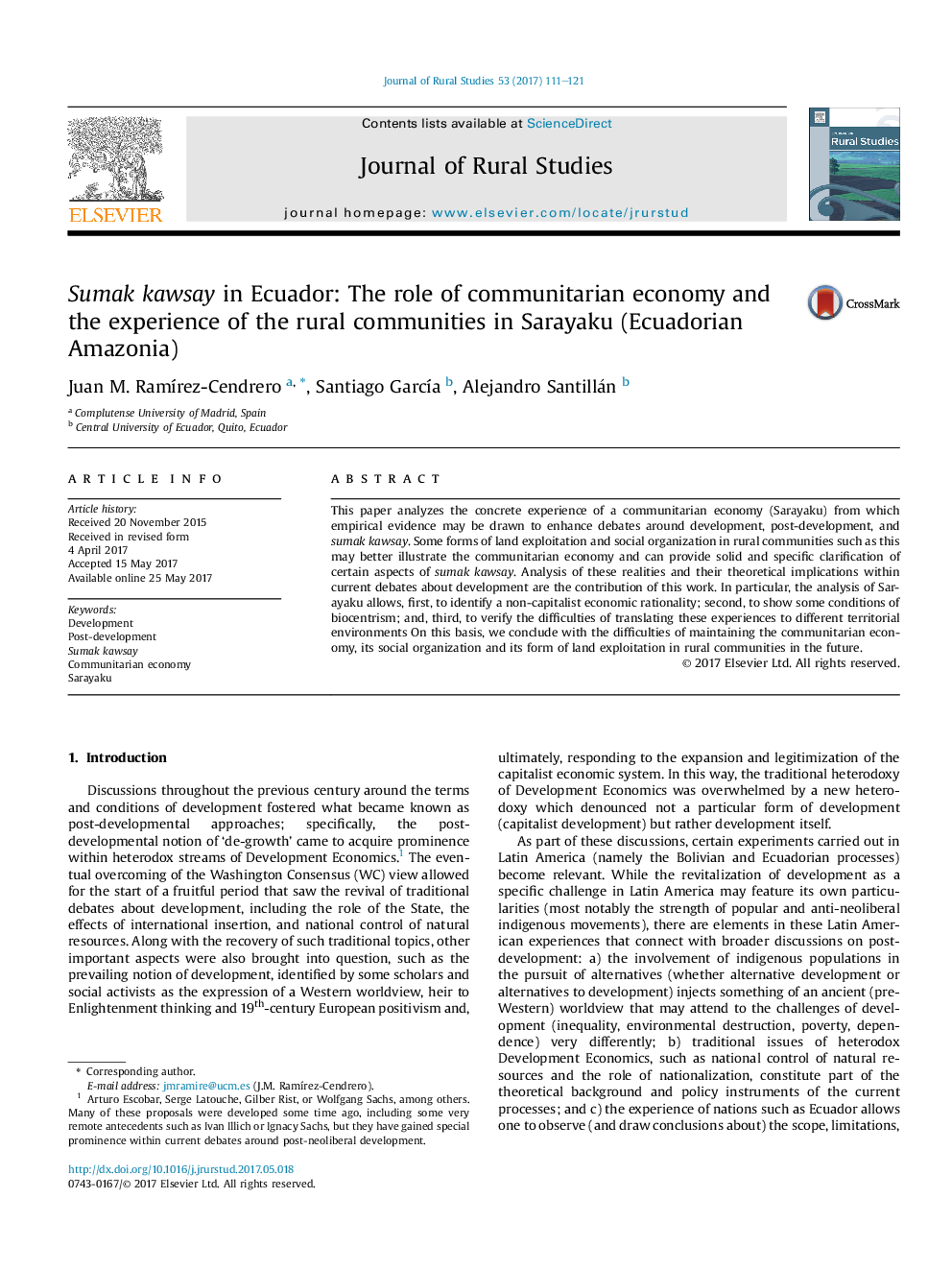| Article ID | Journal | Published Year | Pages | File Type |
|---|---|---|---|---|
| 6459988 | Journal of Rural Studies | 2017 | 11 Pages |
â¢We analyze the communitarian economy of Sarayaku (Ecuador).â¢We found specific modalities of land exploitation and social organization.â¢These modalities are out capitalist rationality.â¢We analyze the difficulties in maintaining the communitarian economy and rural communities in the future.â¢We make contributions to current debates on development and post-development.
This paper analyzes the concrete experience of a communitarian economy (Sarayaku) from which empirical evidence may be drawn to enhance debates around development, post-development, and sumak kawsay. Some forms of land exploitation and social organization in rural communities such as this may better illustrate the communitarian economy and can provide solid and specific clarification of certain aspects of sumak kawsay. Analysis of these realities and their theoretical implications within current debates about development are the contribution of this work. In particular, the analysis of Sarayaku allows, first, to identify a non-capitalist economic rationality; second, to show some conditions of biocentrism; and, third, to verify the difficulties of translating these experiences to different territorial environments On this basis, we conclude with the difficulties of maintaining the communitarian economy, its social organization and its form of land exploitation in rural communities in the future.
